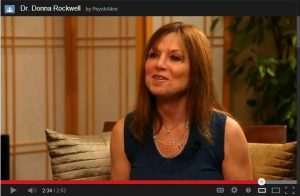Raising Windhorse: How to Harness Personal Power
 America: the land of opportunity? In these hard luck times, it is in each of our best interests to get the most from ourselves, both personally and professionally, in order to turn those opportunities into realized dreams. To this end, everyone hopes to harness all the power they know they have somewhere inside them; the question is, how?
America: the land of opportunity? In these hard luck times, it is in each of our best interests to get the most from ourselves, both personally and professionally, in order to turn those opportunities into realized dreams. To this end, everyone hopes to harness all the power they know they have somewhere inside them; the question is, how?
Held captive by an all-pervasive media and back-to-kindergarten socialization, we learn from the earliest age to look to others to determine our self-worth and deservedness. Paralyzed by fear, we reduce our likelihood of success and achievement. Instead of being trained to ask, why not me, our minds are trained to ask, why would it be me? Rather than simply living out our unique and individual giftedness, engaging in life with the fervor of a love affair, our brains have developed deeply entrenched ruts that drag us through baseless fears and career-stopping apprehensions. Looking outside the self and treating the illusory reflection as a mirror is the first problem. We need to understand that due to years of mental conditioning and popculture brainwashing, negative self-appraisals and knee-jerk self-doubt are as much a bad habit as nail biting. The trick is to break the habit.
The way to free ourselves from such conditioned habits of mind is to build inner-confidence through a process Tibetan meditation master, Chögyam Trungpa calls, “raising windhorse.”
There is an uplifted quality that exists in our lives. You could call it sacred existence, which is automatically created because of your mindfulness and awareness. We pay attention to details: we wash the dishes, we clean our room, we press our shirts, and we fold our sheets. When we pay attention to everything around us, the overall effect is “upliftedness.” The…term for that is “windhorse.”
The best way to raise windhorse, and generate this state of upliftedness that makes everything else possible—that creates the “go for it!” spirit we crave—is to subdue the doubting mind by disarming negative thoughts. By working, instead, on developing confidence, in time we can extend this positive energy outward to other successes. Any harmful “traitor” thoughts are rendered powerless to sabotage our dreams. Such thinking is simply dismissed as useless and habitual. Discovering the natural self-confidence that is in each one of us, faint at first but growing stronger over time, helps us reclaim the power to shape our lives in the ways that we want. Ironically, in order for belief-in-self to fully blossom, it must be tended to regularly, brought into greater and greater focus, and repeated often, like a mantra. By cultivating self-gratitude, Trungpa says:
We can appreciate the real world on the spot. We can appreciate the bright, beautiful fantastic world around us…If we don’t negate our habitual patterns, we can never fully appreciate the world. But once we overcome habitual patterns, the vividness…[and] the magic will descend, and we will begin to be individual masters of our world.
When this state of mastery is achieved, untold power, intelligence, and wisdom become accessible to us, like magic. And, just as the shining sun is not gone but simply obscured momentarily by passing clouds, our true, secure self is always right there, too, waiting for us to seeourselves more clearly, confident in our gifts and how to materialize our most cherished goals. With the right viewpoint, aspirations are attainable.
Much of our inability to access our personal power comes from a fear of suffering, a fear of painful feelings, or a fear of failure. This is another problem: we waste precious time and resources avoiding fear instead of living vibrantly, productively, and fully in the present moment, thereby actually creating the futures we long for. As in the practice of yoga, it is sometimes more useful to slow down and examine our reactions to things, rather than running away as soon as we feel uncomfortable. In Mindfulness Yoga, for example, author Frank Jude Boccio says that untapped potential is available to us once we learn to approach yoga, and our lives, with a greater sense of playfulness and curiosity, like a “child exploring her surroundings”:
Sometimes when practicing postures we feel pain. Pain, like other sensations, can be our teacher. Again, approach pain with respect and an attitude of inquiry. Much of our suffering is a result of our avoidance of pain. Our practice is to observe our resistance to feeling pain and learn ways to soften that resistance. Through this practice we learn that much of our pain is merely discomfort with the way things are. One thing we learn through practice is to more accurately sense what is real pain and what is discomfort.
By learning to stay present with the way things are, to observe our resistances rather than struggling against them, we are freer to take the necessary steps to succeed in life in the ways we desire. With radiant self-confidence growing within us, personal power is now at our disposal. We feel empowered and ready to take on the world. Nothing is beyond our reach. We are possibility.
Thus, Trungpa says, “The direction in which we are going, or the direction we are facing, is unmistakable.” By paying attention to our appearance, which contributes to dignity and self-respect; by eating mindfully, to wisely feed body, mind, and soul; by relaxing and exercising regularly, to keep the physical, mental and emotional processes running smoothly; and, by developing courage, fearlessness, and fortitude to deal with the challenges and stresses rooted in the ever-changing nature of life, we can reach our fullest potential. Raising windhorse helps us maintain this important vision.
Self-confidence is our actual, natural state. And, as the petals of a flower unfold, as the seasons come and go, and as the tides ebb and flow in perfect lunar harmony, we can similarly and quite organically break all negative thought patterns and discover in their place our innate, uplifted human spirit. On the back of windhorse, then, we take flight.
This first appeared in Ambassador Magazine, Detroit, Michigan.
Tags: confidence, personal power, self confidence, self-worth









Leave a Reply